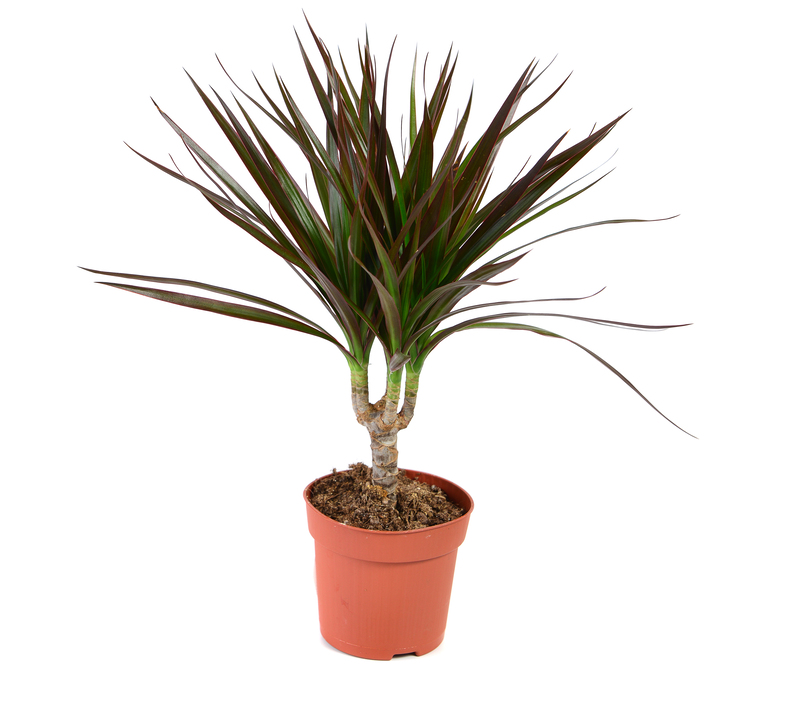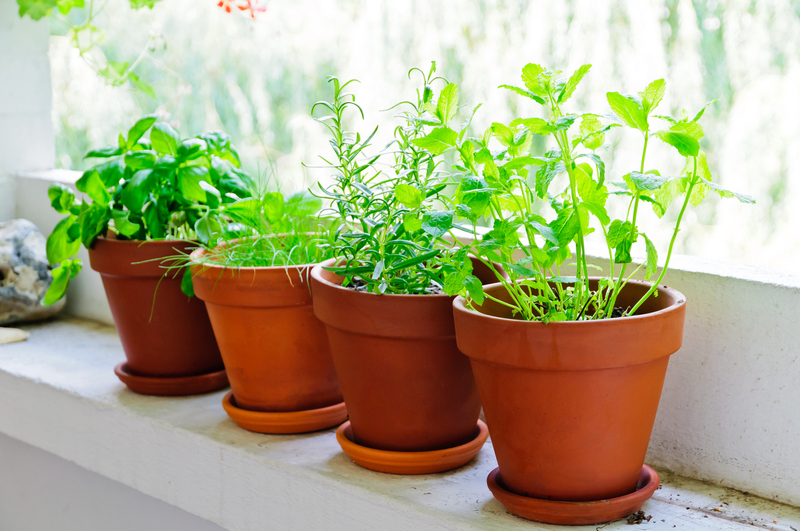Discover Zen Balance with Thoughtful Garden Enhancements
Posted on 10/09/2025
Discover Zen Balance with Thoughtful Garden Enhancements
Garden spaces are more than just an extension of your home--they are sanctuaries for the soul and canvases for creativity. Today, amidst the rush of daily life, people are increasingly seeking tranquility and harmony. Achieving a Zen balance in your garden is a transformative experience, involving careful planning, nature-inspired materials, and a profound respect for the art of living simply. In this in-depth guide, you'll uncover actionable tips and expert suggestions to help you create a harmonious garden retreat with thoughtful enhancements that spark serenity and mindfulness.

Why Seek Zen Balance in Your Garden?
Zen garden design is rooted in the ancient philosophy of Zen Buddhism, emphasizing simplicity, naturalness, and balance. The concept goes beyond aesthetics--it's about nurturing a peaceful mindset and fostering a deeper connection with nature. With growing urbanization and digital overload, a Zen-inspired outdoor space offers you:
- Stress reduction: Escaping into a garden sanctuary calms the nervous system and encourages mindful breathing.
- Increased focus: A balanced, minimalistic garden helps clear mental clutter and improve concentration.
- Enhanced well-being: Being in harmonious natural settings supports mental health and overall happiness.
- Beautiful aesthetics: A Zen garden is visually soothing, mixing simplicity, order, and elegance.
Bringing Zen balance to your garden is easier than you might think. The following sections will dive into the essential garden enhancements that foster tranquility and balance.
1. Embrace Natural Materials
Stone, Gravel, and Wood: The Backbone of Zen Spaces
The use of organic elements is a key feature in Zen landscaping. Japanese gardens, known for their focus on the essence of materials, use stone, gravel, and wood to mimic natural formations and landscapes. Each element brings a unique texture and symbolism that helps establish harmony:
- Stone: Symbolizes mountains, permanence, and strength. Strategic stone placement shapes pathways or creates focal points, encouraging mindful movement.
- Gravel: Suggests flowing water. Carefully raked gravel gardens create a sense of rhythm and provide a meditative activity that cultivates mindfulness.
- Wood: Offers warmth and grounding energy. Whether in the form of a bamboo fence, rustic bench, or garden deck, wood highlights the beauty of imperfection and impermanence.
Tips for Selecting Natural Materials:
- Choose local and sustainable sources whenever possible for authenticity and ecological balance.
- Combine large stones with smaller pebbles for textural diversity.
- Use untreated wood for a naturally weathered appearance that evolves gracefully over time.
2. Minimalism: The Art of Less is More
Zen gardens embrace minimalism--each object and plant has purpose and meaning. Avoid clutter and focus on open spaces that invite peace and contemplation.
Creating Negative Space
- Allow areas of empty ground to contrast with lush arrangements, symbolizing potential and openness.
- Arrange seating or ornaments sparingly to maintain a sense of spaciousness.
Remember, the aim is not to fill every corner, but to curate an environment where both the eye and spirit can rest.
3. Water Features: The Essence of Calm
Incorporating water elements in your garden is an effective way to promote Zen balance. Water is revered for its calming sounds and associations with renewal and flow.
Popular Types of Water Features:
- Ponds: Symbolize inner reflection and encourage gentle wildlife presence.
- Bubbling Fountains: Provide soothing soundscapes and focal points for meditation.
- Streams or Cascades: Suggest constant movement and the fluid nature of life.
Choose a size and style that fit your space and maintain balance--a subtle trickle is often more peaceful than a grand waterfall.
4. Thoughtful Plant Selection for Zen Balance
Evergreens, Bamboo, and Moss
Zen gardens are famous for their refined plant palette. Each plant is thoughtfully chosen for year-round beauty, simplicity, and ease of maintenance. Consider these Zen staples:
- Evergreens: Provide continuous structure and embody quiet strength. Japanese Black Pine, Boxwood, and Yew are classic choices.
- Bamboo: Adds movement and a calming rustle. Bamboo screening can bring privacy and a sense of enclosure.
- Moss: Offers a plush, velvety groundcover that's serene underfoot and visually restful.
Seasonal and Flowering Accents
- Maple trees: Delicate foliage and vibrant autumn hues for visual drama.
- Camelias and Azaleas: Occasional blossoms that celebrate impermanence.
Arrange plantings asymmetrically to mimic nature and avoid rigid lines. Layer textures and colors subtly--Zen gardens favor greens and whites, with gentle pops of color as a rare delight.
5. Creating Paths and Walkways
Encourage Mindful Movement
Pathways are more than just a way to navigate your garden--they represent a journey toward balance and inner peace. Design your garden paths with intention by:
- Using stepping stones with irregular shapes rather than long, straight walkways.
- Directing paths past focal points like lanterns, water basins, or distinctive plants.
- Spacing stones unevenly to slow footsteps and encourage mindfulness.
Materials for Zen Pathways:
- Flagstone for a rustic, organic feel.
- Gravel crunches softly underfoot, promoting sensory awareness with every step.
- Wooden planks or bamboo add warmth and blend seamlessly into greenery.
6. Incorporate Symbolic Features
Lanterens, Basins, and Sculptures
Thoughtful symbolism is central to fostering a Zen atmosphere in your garden. Choose artful garden accents that echo Zen philosophy rather than overwhelm:
- Stone lanterns (Toro): Represent light against darkness and offer timeless, subtle charm.
- Water basins (Tsukubai): Traditionally used for ritual cleansing and symbolic of inner purity.
- Statues: Sculptures of cranes, turtles, or Buddhas add layers of meaning without dominating the scene.
Place these features where they are half-hidden by foliage, discovered unexpectedly as you wander.
7. Mindful Seating for Reflection
To fully appreciate your Zen-inspired garden, include one or two well-placed seating options. Benches, low stools, or flat-topped boulders invite you to pause, observe, and meditate. Ensure seating:
- Is made from natural materials like stone or untreated wood.
- Faces a calming focal point--a water feature, a special tree, or a tranquil open space.
- Is positioned out of direct paths, fostering a sense of privacy and enclosure.
8. Lighting for Tranquil Evenings
As daylight fades, subtle outdoor lighting can transform your garden into a serene nocturnal haven. Use:
- Soft LED path lights for gentle guidance.
- Solar lanterns for eco-friendly ambiance.
- Underlighting for trees or architectural stones to create mystery and depth.
Avoid harsh spotlights--the goal is an inviting, ambient glow that highlights garden features without breaking the tranquility.
9. Scent and Sound for Multi-Sensory Harmony
Enchant the Senses
True Zen balance involves engaging all the senses. For scent:
- Plant fragrant herbs like lavender, mint, or thyme near seating or pathways.
- Consider jasmine or honeysuckle vines for soft evening fragrance.
To add gentle sound, hang wind chimes or allow bamboo leaves to rustle. The sound of water, birdsong, and wind are all part of harmonious garden soundscapes that enhance your experience of Zen serenity.
10. Practicing Ongoing Mindfulness and Maintenance
Building a peaceful Zen retreat doesn't end with installation--ongoing care is vital. Regular maintenance is itself a meditative act, reinforcing your connection to the garden and its evolving beauty:
- Rake gravel or sand in patterns for mindfulness practice.
- Trim, shape, and tidy plants following the natural forms rather than forcing symmetry.
- Clean water features and replenish stones or mulch as needed.
- Take moments to sit quietly and appreciate small changes--be present in your garden.

Benefits of Thoughtful Garden Enhancements in Everyday Life
Beyond beauty and interest, enhancing your garden with Zen principles brings tangible benefits:
- Reduces blood pressure and anxiety through contact with nature and calming environments.
- Improves concentration and creativity by promoting mindful observation and uncluttered surroundings.
- Fosters a sense of accomplishment and pride in curating a purposeful oasis for yourself and loved ones.
- Supports sustainability and biodiversity with the use of eco-friendly materials and native plants.
Start Your Journey: Zen Balance with Thoughtful Garden Enhancements
Bringing Zen balance to your garden is not about following rigid rules but about nurturing harmony, simplicity, and presence. Whether you are transforming a small courtyard or a sprawling backyard, thoughtful enhancements--from tranquil water features to natural materials and harmonious lighting--will turn your garden into an ever-evolving sanctuary. Start slowly, let your intuition be your guide, and remember that the process is as rewarding as the result.
Key Takeaways
- Integrate natural materials like stone, gravel, and wood for authenticity and balance.
- Embrace minimalism, focusing on meaningful elements and open space.
- Introduce water features for movement and calmness.
- Pick plants carefully--favor evergreens, bamboo, and subtle seasonal color.
- Design mindful walkways and seating for peaceful journeys and reflection.
- Use subtle lighting and sensory enhancements to enrich your space day and night.
- Maintain your Zen garden through gentle, ongoing care and mindfulness.
Explore, enjoy, and discover Zen balance with each thoughtful garden enhancement you make. Your path to tranquility starts with a single, intentional step in your own backyard.
Latest Posts
Weed-Free Gardening: 3 Strategies for Success
Designing Stunning Gardens through Hedge Trimming Shapes
Create Lush Landscapes with Vertical Gardening

